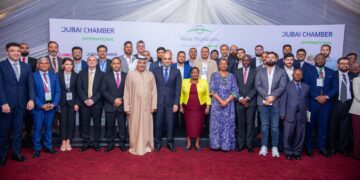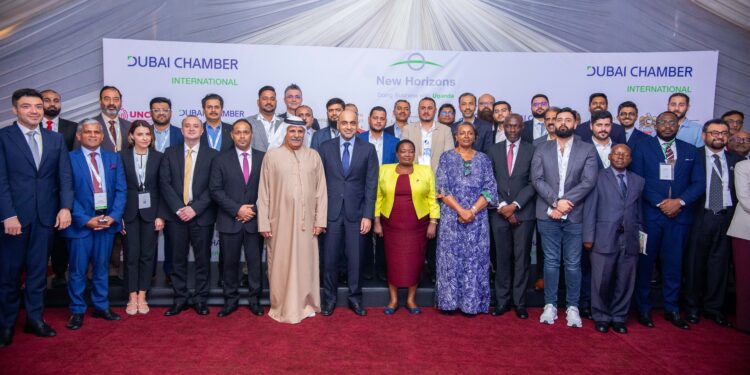Kampala, Uganda – Prime Minister Rt. Hon. Robinah Nabbanja has emphasised the strong and growing economic relationship between Uganda and the United Arab Emirates (UAE).
She was on Monday speaking at the “Doing Business with Uganda” forum on December 9, 2024, held at the Sheraton Hotel in Kampala. The New Horizons Event brought together government officials, business leaders, and policymakers from Uganda and the United Arab Emirates (UAE) to strengthen bilateral trade and investment ties.
In her remarks, Prime Minister Nabbanja commended the enduring friendship between Uganda and the UAE, emphasising their shared commitment to peace and prosperity.
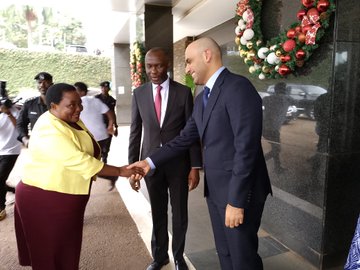
She noted the strong trade relationship, highlighted by President Yoweri Kaguta Museveni’s three visits to the UAE in the past four years and the 2023 trade milestone of $3.8 billion between the two nations.
“Our relationship with the UAE is built on mutual respect, shared interests, and a commitment to peace and prosperity,” she added.
Prime Minister Nabbanja underscored the significant progress made in the bilateral ties between Uganda and the UAE, citing the surge in trade, which reached over $3.8 billion in 2023.
“The Foreign Direct Investment from UAE to Uganda is now worth $3 billion, covering key sectors such as energy, infrastructure, healthcare, agribusiness, oil and gas, manufacturing, construction, real estate, and tourism,” she noted.
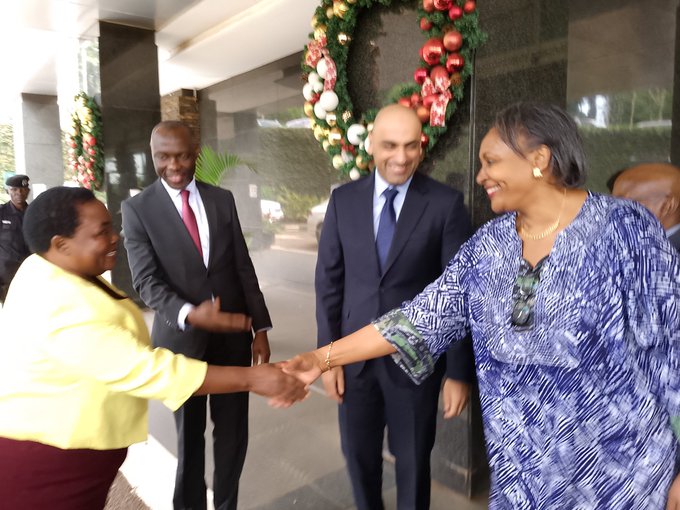
As part of Uganda’s broader economic vision, Nabbanja outlined the government’s goal of transforming the country into a $500 billion economy by 2040. “The government of Uganda is implementing a tenfold growth strategy that focuses on four anchor sectors: agro-industrialization, tourism development, mineral-based industrialization including oil and gas, and science and technology, particularly ICT,” she explained.
The Prime Minister highlighted key incentives for investors, particularly in the agricultural and manufacturing sectors. “In the agricultural sector, we offer a 10-year tax holiday for agro-processors in industrial parks and export-oriented zones. Additionally, there are exemptions on VAT and import duties for agricultural inputs and machinery,” she said.
She also pointed out similar benefits for the manufacturing sector, including income tax holidays and VAT exemptions on raw materials.
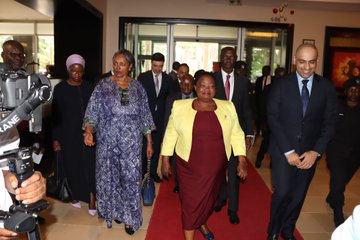
In addition, Nabbanja revealed that Uganda is poised to begin commercial oil production in 2025. “We are finalising the quantification of mineral deposits, enhancing governance, and commercialising mining operations and petrochemical products,” she stated.
She encouraged greater collaboration between the Ugandan and UAE business communities. “We have the chance to build a lasting partnership that goes beyond economic transactions and fosters expertise and innovation,” she said. “I also urge our guests to take time off and explore the tourist attractions that the Pearl of Africa has to offer.”
Uganda’s Investment Potential
Ms. Olive Kigongo, President of the Uganda National Chamber of Commerce and Industry (UNCCI), cited Uganda’s vast opportunities for investors and the pivotal role of the Chamber in facilitating partnerships.

Uganda boasts a wealth of investment opportunities across diverse sectors, including agriculture, tourism, infrastructure, and information and communication technology (ICT).
Kigongo highlighted Uganda’s thriving agricultural sector as a cornerstone of its economy, offering immense export potential for fresh produce and value-added products.
“We have fertile land, fresh produce, and a vibrant agricultural industry. Investors can tap into these opportunities, not only to meet local demands but also to export to international markets,” Kigongo noted.
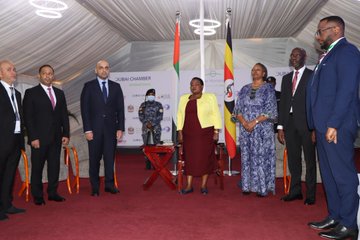
She stressed the Chamber’s ability to provide accurate information, connect investors with local partners, and ensure projects align with best practices.
Despite Uganda’s vast potential, Kigongo acknowledged challenges such as inconsistent quality control, unreliable logistics, and limited market awareness. She urged businesses to focus on quality assurance and strategic planning to compete effectively in global markets.
Strengthens economic ties
H.E. Mohammad Ali Rashed Lootah, President and CEO of Dubai Chambers, lauded the robust trade relationship between Dubai and Uganda, noting that non-oil bilateral trade reached $1.2 billion in 2023.

Uganda’s gold, coffee, and agricultural products have been leading exports to Dubai, while Dubai exports machinery, vehicles, and IT equipment to Uganda.
Lootah emphasised the importance of digital innovation, expressing Dubai’s commitment to supporting Ugandan startups in the tech sector.
“By leveraging Dubai and Uganda as platforms, young digital entrepreneurs can expand their reach into the East African Community and the Middle East,” he said.
